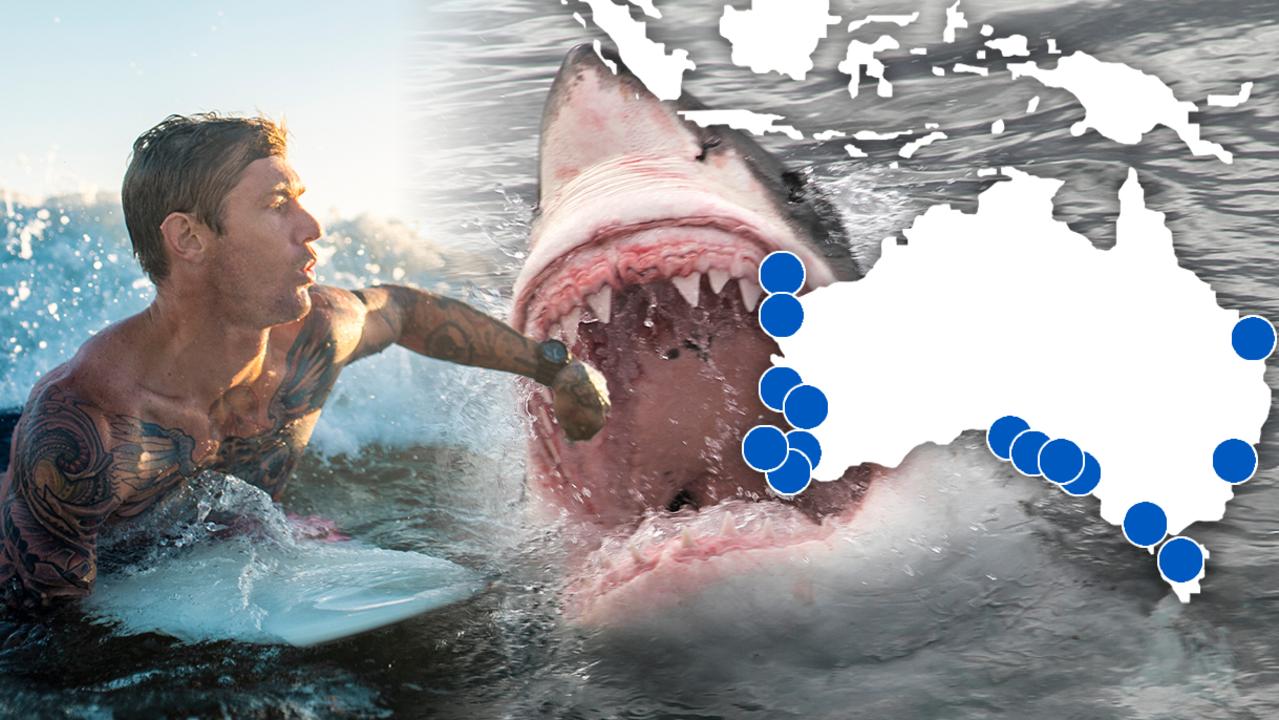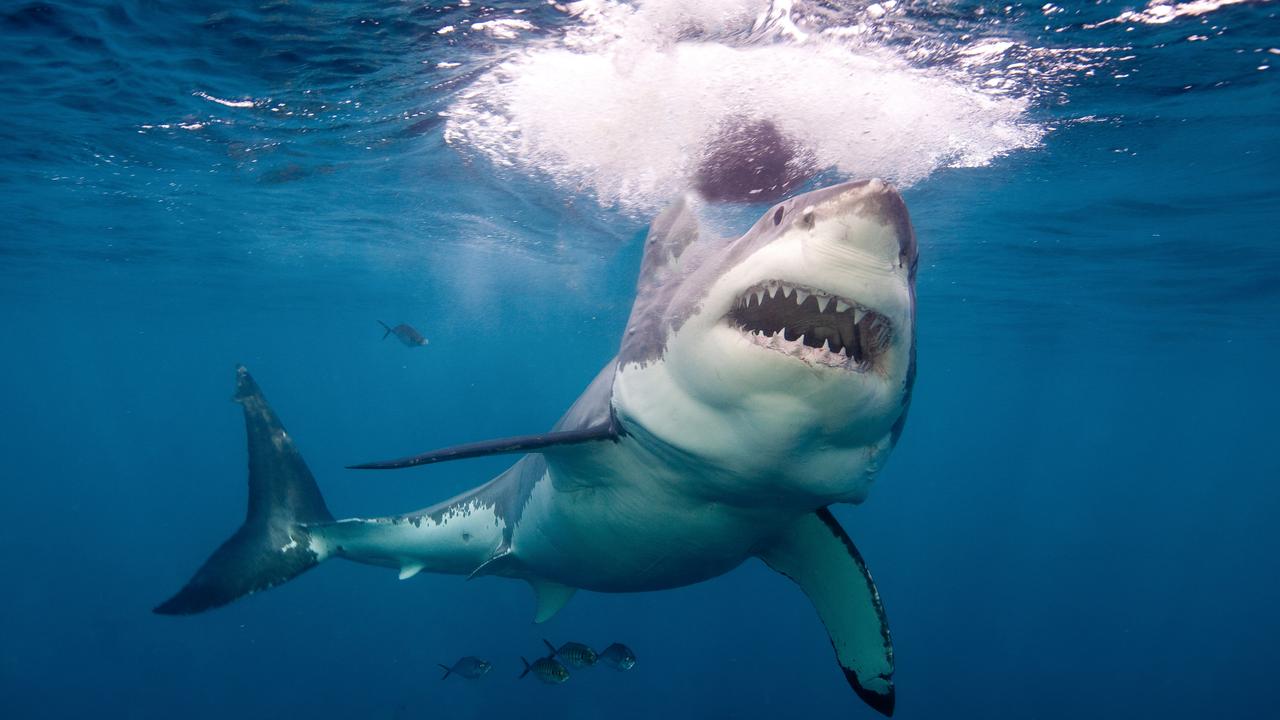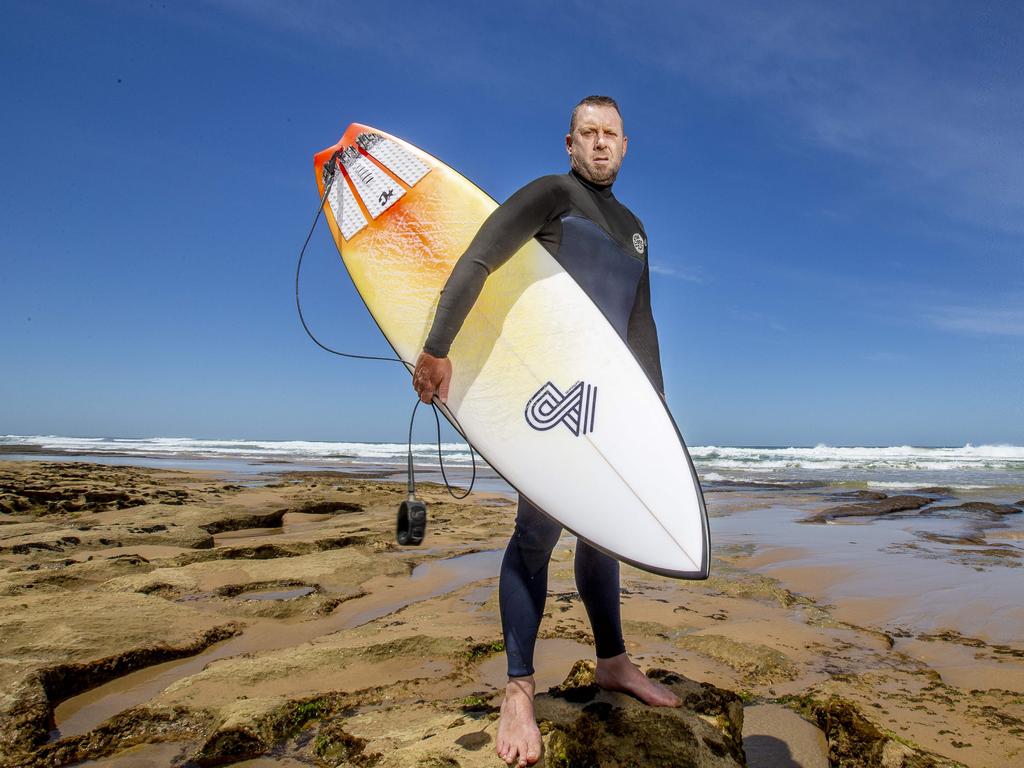World shark experts’ tips on preventing, and surviving, shark attacks: See Vic list of attacks
On the 50th anniversary of Jaws, Australia has topped a global list for shark attack fatalities — and one group is most at risk. Experts have revealed how to avoid being bitten and possibly survive an attack.
Australia has topped a global list for shark attack fatalities, representing “a disproportionate” 40 per cent of deaths worldwide last year, and surfers are most at risk.
New research from the University of Florida shows that while Australia had less than half the number of unprovoked shark bites than the US in 2023 — with 15 compared to 36 — it had twice the number of fatalities, with four compared to two in the US.
Of Australia’s 15 unprovoked shark bites, seven occurred in Western Australia, where one bull shark attack proved fatal.
Five attacks were in South Australia, where three great white bites were fatal, and there were single attacks recorded in Queensland, New South Wales and Tasmania last year.
Director of the Florida Museum of Natural History’s shark research program Dr Gavin Naylor said the number of fatalities in 2023 were “a bit unnerving”.
Australia and surfers copped the brunt of fatal bites globally.
Three fatalities in 2023 occurred in waters off South Australia’s remote Eyre Peninsula — which was known for its remote, wild beaches, seal colonies and home to “a high density” of great white sharks, Dr Naylor said.
With phenomenal surf breaks, the location was “an alluring spot for surfers”, he said.
“If a white shark is going after a seal and the seal knows it, the white shark hasn’t got a chance,” Dr Naylor said. “Seals are really agile, so the only ones that get caught are the ones that are goofing off and flopping around on the surface minding their own business. And that’s kind of what a surfer looks like.”
Surfers suffered 42 per cent of shark bites worldwide, with swimmers and waders a close second at 39 per cent, The Florida Museum of Natural History’s International Shark Attack File (ISAF) report notes.

Globally, there were 14 confirmed shark-related fatalities, ten of which were labelled unprovoked, it says.
“This number is higher that the five-year annual global average of six unprovoked fatalities per year. Three of the unprovoked fatalities were due to bites from (great) white sharks on surfers in Australia,” the report states.
“Ten of the past year’s unprovoked attacks (globally) were fatal, up from five the year before, with a disproportionate number occurring in Australia. Although the country accounted for 22 per cent of all attacks, it made up 40 per cent of fatalities.”
The ISAF report says the rise in the number of fatalities due to great white sharks could reflect “the consequence of increasing number of white sharks seen at aggregation sites near beaches, that are increasingly popular with surfers — particularly in Australia”.
Year-to-year variability in oceanographic conditions can influence the abundance of sharks in the water, while weather patterns can affect the number of humans in the ocean, it says.
The ISAF — a scientific database of global shark attacks — states there were 69 unprovoked bites throughout the world in 2023.

Besides Australia, shark fatalities occurred in the US (two), the Bahamas, Egypt, Mexico and New Caledonia (one in each country).
Other confirmed, non-fatal bites occurred in Costa Rica, Colombia, Brazil, New Zealand, Seychelles, Turks and Caicos, Ecuador (in The Galápagos Islands) and South Africa.
While the ISAF documents and investigates all bites on humans by sharks, its annual report focuses primarily on unprovoked attacks, it says.
“These are defined as any instance in which a shark is in its natural habitat and attacks without any human provocation, which includes intentionally approaching a shark or swimming in an area where bait is being used to lure fish. Unprovoked bites are the most useful for studying how sharks behave.”
Shark researcher Joe Miguez said beach safety in Australia was “fantastic”.
“However, if you go to remote regions where beach safety isn’t in place, there is a higher risk of a fatal shark attack. This is because when an attack happens and there is beach safety, you can get a tourniquet on sooner and save the person’s life. So, the solution isn’t to not surf, it’s to surf in areas where there’s a good beach safety program in place,” he said.
This February marks the 50th anniversary of the book Jaws and “notably, the number of recorded white shark bites have increased precipitously over the last few decades”, the report says.


“This pattern isn’t due to increased aggression from white sharks, but rather a combination of more people being in the ocean each year and a stronger emphasis placed on reporting bites and fatalities,” it says.
The vast majority of unprovoked attacks by sharks were “test bites”, which occur when a shark misakes a human for their preferred prey, the researchers said.
When this happens, the shark will typically swim away after a single bite.
But some species, such as great whites, bull and tiger sharks, are big and powerful enough for even a single “test bite” to be fatal.
“Unusual incidents when a shark continues biting their victim, rather than swimming away, have been documented with tiger sharks, bull sharks and white sharks.”
VICTORIAN SHARK ATTACKS
Izaak Johnstone: Nuns Beach, Portland – October, 2022
A Portland teenager says he was lucky a shark didn’t eat his foot after he was attacked while surfing at Nuns Beach.
Izaak Johnstone, 17, was surfing with eight of his mates when he felt a shark “swallow” his foot, followed by a painful bite that left gashes in his right foot and required surgery.

Jack Shaw and Tiarna Athanasiou: Ocean Grove – December 2021
Teenagers Jack Shaw and Tiarna Athanasiou were attacked by a bronze whaler shark off Ocean Grove.
Jack was able to fight off the shark to rescue himself and his friend.
“I turned around, it got me on the back and then I said, ‘swim’ and tried as fast as we could to get back into shore,” Mr Shaw said.
He suffered a centimetre-deep gash and bite marks to his back, while Tiarna suffered a cut to her hand and a wound to her leg, and had to undergo surgery.

Dylan Nacass: Bells Beach, Torquay – May, 2020
French backpacker Dylan Nacass was lucky enough to escape with his limbs when he was attacked by a shark at Bells Beach.
Mr Nacass was surfing at the famous surf spot when a shark grabbed hold of his leg. He punched it twice and successfully escaped but suffered gashes to his legs, which had to be stitched up.

Marcel Brundler: Lorne – August, 2017
Veteran surfer Marcel Brundler was attacked by a four-metre-long shark while surfing off Lorne.
Mr Brundler was enjoying his surf, when he mistook a shark swimming directly towards him for a friendly dolphin, until it attacked.
Fighting to save his life, Mr Brundler punched the shark in the hope it would release him.
“At some stage, it had me in its jaws.
“I was shouting and punching it while it attacked me,” Mr Brundler said.

Mike Higgins: Port Campbell – June, 2012
Mike Higgins was surfing with friends on Victoria’s southwest coast when a shark bit his foot.
Mr Higgins said he felt something “brushing” below him, soon realising a “five or six feet long” shark had bitten him.
He and his friends swam back to shore as quickly as they could.
“It had a little bite then let me go after a couple of seconds … I was pretty scared,” Mr Higgins said.
Mr Higgins suffered severed tendons and a 7cm gash to his foot.
He was transported to Geelong Hospital by ambulance, where he underwent surgery a couple of weeks later, ending up with 25-30 stitches.


Jimmy McDonald Jones: Flinders – July, 2013
Mr McDonald Jones was body surfing with three of his friends on the Mornington Peninsula, when a shark sank its teeth into his back “like a suction cup”, and left a basketball-sized hole in his wetsuit.
“It took a bite across my back about the size of a basketball. I pushed it off and it was thrashing against me, it was really strong – I thought I was dead,” Mr McDonald Jones said.
The young surfer was able to swim to safety, but the shark bit him again.
“I think he was just curious; if he’d wanted me, he would have had me. He had a taste and thought, ‘that’s not a seal’,” he said.

Dr Pat Lockie: Thirteenth Beach, Barwon Heads – January, 2010
Dr Lockie was surfing off shore when he was bitten by what he believed was a tiger shark after placing his hand into the water.
The doctor was able to free himself by ripping his right hand from the shark’s mouth, suffering lacerations to his hand.
Plastic surgeons were later able to patch up the wound on his hand.
“It came up to me and I saw its head. I honestly couldn’t say what I was feeling. It was absolute terror,” Dr Lockie said.




